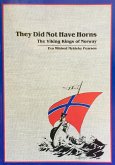Addressing this question comprehensively necessitates a thorough examination of Muslims' recent past and a comparison with their present. Therefore, this book delves into the historical and contemporary aspects of Muslims' progress and regression.
A comprehensive understanding of the present requires a deep dive into the past. While the recent past is of primary interest, a look at the distant past is necessary to understand Muslims' recovery from setbacks, such as the recent colonial subjugation. The distant past also holds the key to understanding Muslims' religious obligation to acquire knowledge directly related to their present life in the Age of Enlightenment. One needs to examine Muslims' original contributions to knowledge, which were primarily overlooked until their recent rediscovery.
This book, structured into six parts, provides a roadmap for our exploration. We begin with Part I, which delves into setbacks and recoveries. The first setback, initiated by the Crusaders in 1096, lasted about 200 years until their final elimination in 1291. The last seven decades of the Crusaders' occupation coincided with the Mongol control of Muslim lands. After Muslims dealt with Mongols, three significant empires emerged in the Muslim world: Ottomans in Asia, Africa, and Europe (1299-1922), Safavids in Persia (1501-1736), and Mughals in India (1526-1857). The third setback was the colonial control, which has physically faded away, but the process of complete recovery from it is still ongoing.
One available measure of the relevance of the Islamic message to the Age of Reason is to ascertain Muslim attitude toward knowledge. Assessing the Muslim contribution to knowledge will be covered in Part II. With no intention to invoke nostalgic memories of their glorious past, the recorded facts of significant and purely original contributions of Muslims to knowledge will be examined. Muslims' quest for knowledge was driven by the Quran and the teachings of Mohammad (PBUH). The core aspects of the Muslim contribution to knowledge will be documented. The intriguing phenomenon of the Muslim contribution put out of sight by the Medieval European mindset and an ongoing effort guided by Western scholars to bring it back into sight will be examined. Muslims' obligation to seek knowledge directly affects their future in the Age of Reason.
Muslims' transition from an agrarian to an industrial economy is one of the main challenges they face today. It involves a change in Muslim societies' mindsets, as the West recently experienced a shift from the medieval mindset. Part III will look at West's journey to Enlightenment along with the challenges it faced and the time it took. The information is relevant to what Muslims presently pass through after awakening from a long slumber under colonial control. A brief picture of how the Church dominated individual life, as well as the governments and the West's struggle to free itself from the hold of the Church, kings, and barons, will be examined. Europe's wars of religion and other violence, with its simultaneous stride towards renaissance, will be touched. Europe's achievement of curbing tendencies of colonisation within Europe and its greatest effort of colonisation of the rest of the world will be revisited. Finally, the Enlightenment will be briefly covered, which brought the West to where it is today.
Dieser Download kann aus rechtlichen Gründen nur mit Rechnungsadresse in A, B, CY, CZ, D, DK, EW, E, FIN, F, GR, H, IRL, I, LT, L, LR, M, NL, PL, P, R, S, SLO, SK ausgeliefert werden.









